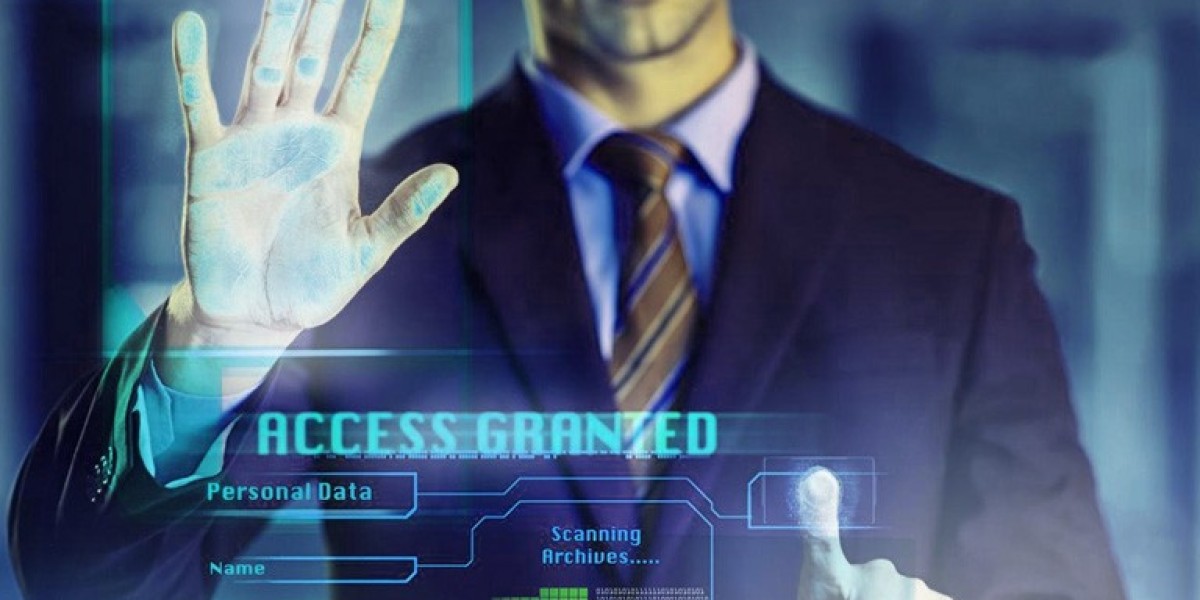Hiring a Virtual Chief Information Security Officer (vCISO) provides organizations with affordable expertise and strategic direction in cybersecurity without the expenses associated with hiring a full-time CISO.
Employing a full-time Chief Information Security Officer (CISO) may not be financially feasible, but the evolving threat landscape does not take budget limitations into account.
This is where a Virtual CISO (vCISO) can be beneficial. A vCISO provides on-demand executive-level cybersecurity guidance, assisting you in establishing a robust security framework, ensuring compliance with regulations such as HIPAA or GDPR, and enhancing your security measures as your business expands, all without the expense of a full-time position.
What Is a Virtual CISO (vCISO) and How Does It Work?
A Virtual Chief Information Security Officer (vCISO) is a cybersecurity specialist or team that offers strategic advice to your organization in a remote and adaptable manner.
The risks associated with cybersecurity are growing more sophisticated and widespread. For small and medium-sized enterprises (SMEs), the difficulty lies in both protecting sensitive data and maintaining budget control.
In contrast to a conventional CISO, who is a full-time executive on salary, a vCISO offers services on a part-time basis or as required, serving as your security leader without taking up a permanent position. This is a great and accessible solution for SMEs.
- Conduct risk assessments and security audits.
- Develop and oversee security policies and governance.
- Guide security investments and vendor selections.
- Support regulatory compliance efforts.
- Advise on incident response and disaster recovery planning.
Whether on a retainer or project basis, a vCISO brings expert insight, practical strategies, and operational leadership tailored to your unique business needs.
Key Benefits of Hiring a vCISO for Small to Medium Businesses
For growing businesses, the benefits of vCISO services go far beyond cost savings:
Strategic Benefits:
- Executive-level leadership without full-time employment.
- Access to seasoned experts with diverse industry experience.
- Customized strategies aligned with your business model and risk appetite.
Operational Advantages:
- Flexible engagement models (retainer, per-project, hourly).
- Quicker deployment and faster ROI.
- Integration with existing IT and MSSP teams.
Risk Reduction:
- Proactive data leak prevention strategies.
- Identification of security gaps before they lead to breaches.
- Stronger alignment with cyber insurance and compliance frameworks.
How a vCISO Strengthens Your Cybersecurity Posture
Cybersecurity isn’t just about firewalls and antivirus software — it’s a holistic strategy. A vCISO strengthens your posture by integrating security into your company’s DNA.
- Performs vulnerability assessments and penetration tests.
- Implements data classification and access control policies.
- Introduces Data Leak Prevention (DLP) tools and monitoring.
- Enhances security awareness through staff training and simulations.
- Builds long-term security roadmaps and benchmarks.
How to Choose the Right vCISO Provider for Your Business
Choosing the right vCISO provider is as important as hiring one. What to Look For:
- Proven experience in your industry.
- Knowledge of relevant compliance frameworks.
- Scalable service offerings.
- Strong communication and reporting capabilities.
- Testimonials, case studies, or client references.
- Certifications (CISSP, CISM, CISA, etc.).
When Should a Business Consider a Virtual CISO?
You don’t need to wait for a breach to consider a vCISO. If your organization is experiencing the following, then a vCISO is essential.
- Experiencing rapid growth or digital transformation
- Struggling to meet compliance requirements
- Operating in a regulated industry (healthcare, fintech, legal, etc.)
- Preparing for an investment round or M&A
- Recovering from a recent cyber incident
Cyber Insurance Requirements and the Role of a vCISO
As cyber insurance becomes more selective, vCISOs are essential in meeting eligibility.
How vCISOs Help:
- Ensure mandatory controls are in place (MFA, backups, encryption).
- Provide audit-ready risk assessments and reports.
- Assist in completing complex insurance questionnaires.
Help reduce premiums by showing a proactive security posture.
Core Responsibilities of a vCISO in Today’s Threat Landscape
- Leading risk management programs.
- Developing and enforcing information security policies.
- Designing secure system architectures.
- Conducting third-party/vendor security assessments.
- Managing incident response and disaster recovery strategies.
- Keeping leadership informed with actionable reporting.
Tailored Security Strategies from Expert vCISOs
Unlike off-the-shelf tools or generic consulting, vCISO services are highly customized.
- Custom incident response playbooks.
- Business-specific risk tolerance mapping.
- Prioritized remediation plans based on your budget and timeline.
- Vendor evaluations aligned with your existing tech stack.
- Integration of security with business KPIs and board-level goals.
By aligning security with business strategy, vCISOs help you future-proof your organization.
How a vCISO Helps Build an Incident Response Plan
Every business needs an incident response (IR) plan-but many don’t have one. A vCISO helps develop, test, and maintain a plan to minimize the impact of breaches.
What Your IR Plan Includes:
- Defined roles and escalation paths.
- Communication plans (internal and external).
- Legal and regulatory response protocols.
- Recovery timelines and backup strategies.
- Post-incident reviews and improvements.
Having a strong IR plan in place improves insurance readiness, reduces downtime, and builds stakeholder trust.
Remote Cybersecurity Leadership: Managing Security from Anywhere
A major benefit of vCISO services is their remote nature. With secure access, collaboration tools, and regular reporting, your vCISO can work seamlessly with your internal team-no matter the location.
Benefits of Remote Cybersecurity Leadership:
- Broader access to global talent.
- Faster onboarding and response times.
- Lower overhead with equal effectiveness.
- Continuity during travel, turnover, or hybrid work transitions.
Security leadership doesn’t need to sit in your office- it needs to sit at the head of your strategy.
Cybersecurity isn’t a luxury- it’s a necessity. But for SMBs, affordability and access can be major hurdles. Hiring a Virtual CISO provides expert guidance, scalable solutions, and compliance peace of mind, all without the full-time executive price tag.
From data leak prevention to regulatory compliance, connect with Cybershield CSC to learn more about our vCISO services. Build a safer, smarter future for your business today.
Frequently Asked Questions (FAQs)
1. What exactly does a Virtual CISO (vCISO) do?
A vCISO is a cybersecurity expert or team that provides strategic, executive-level security leadership to your business, remotely and on demand. Their responsibilities include risk assessment, security policy development, compliance support, and incident response planning.
2. How is a vCISO different from a Managed Security Services Provider (MSSP)?
A vCISO focuses on strategic cybersecurity leadership, including policy, governance, and risk management. An MSSP handles the operational side, such as 24/7 threat monitoring, firewall management, and endpoint protection.
3. Is hiring a vCISO really cost-effective for small businesses?
Yes. While a full-time CISO may cost over hundreds of thousands of dollars annually, a vCISO can be hired fractionally, on an hourly, monthly, or project basis. This makes high-level cybersecurity expertise far more accessible to SMBs.








